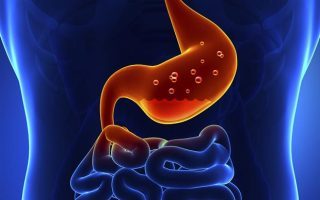- Home
- Editorial
- News
- Practice Guidelines
- Anesthesiology Guidelines
- Cancer Guidelines
- Cardiac Sciences Guidelines
- Critical Care Guidelines
- Dentistry Guidelines
- Dermatology Guidelines
- Diabetes and Endo Guidelines
- Diagnostics Guidelines
- ENT Guidelines
- Featured Practice Guidelines
- Gastroenterology Guidelines
- Geriatrics Guidelines
- Medicine Guidelines
- Nephrology Guidelines
- Neurosciences Guidelines
- Obs and Gynae Guidelines
- Ophthalmology Guidelines
- Orthopaedics Guidelines
- Paediatrics Guidelines
- Psychiatry Guidelines
- Pulmonology Guidelines
- Radiology Guidelines
- Surgery Guidelines
- Urology Guidelines
PPI , Aspirin Combo improves outcomes in Barrett's oesophagus : Lancet

High-dose proton pump inhibitors, PPI and Aspirin chemoprevention therapy, especially in combination, significantly and safely improved outcomes in patients with Barrett's oesophagus, according to the findings of the study recently published in the journal Lancet.
Barrett's oesophagus is a condition where the cells of the oesophagus (gullet) grow abnormally. Barrett's oesophagus is not cancer, but it can develop into cancer in a small number of people. Gastro-oesophageal reflux is one of the main risk factors for Barrett's esophagus, in which a portion of the oesophagus that is usually lined with squamous epithelium undergoes metaplastic change to become columnar mucosa.
Prof. Janusz and his associates conducted a study to evaluate the efficacy of high-dose esomeprazole proton-pump inhibitor and aspirin for improving outcomes in patients with Barrett's oesophagus.
The Aspirin and Esomeprazole Chemoprevention in Barrett's metaplasia Trial had a 2 × 2 factorial design. Patients with Barrett's oesophagus of 1 cm or more were randomised 1:1:1:1 using a computer-generated schedule held in a central trials unit in UK and Canada to receive high-dose (40 mg twice-daily) or low-dose (20 mg once-daily) proton pump inhibitor, with or without aspirin (300 mg per day in the UK, 325 mg per day in Canada) for at least 8 years, in an unblinded manner.
The primary outcome was time to all-cause mortality, oesophageal adenocarcinoma, or high-grade dysplasia. The study included 2557 patients. 705 patients were assigned to low-dose PPI and no aspirin, 704 to high-dose proton pump inhibitor and no aspirin, 571 to low-dose PPI and aspirin, and 577 to high-dose proton pump inhibitor and aspirin and were followed up for 8·9 years.
Read Also: Aspirin+PPI reduces risk of esophageal cancer
Key Findings:
- 313 primary events occurred.
- High-dose PPI (139 events in 1270 patients) was superior to low-dose PPI (174 events in 1265 patients).
- Aspirin (127 events in 1138 patients) was not significantly better than no aspirin (154 events in 1142 patients).
- If patients using non-steroidal anti-inflammatory drugs were censored at the time of first use, aspirin was significantly better than no aspirin.
- Combining high-dose PPI, proton pump inhibitors with aspirin had the strongest effect compared with low-dose PPI without aspirin.
- The numbers needed to treat were 34 for PPI, proton pump inhibitors and 43 for aspirin.
- Only 28 (1%) participants reported study-treatment-related serious adverse events.
“Our results with PPIs, proton pump inhibitors are supported at the physiological level by studies showing that twice-daily proton pump inhibitor produces more effective suppression of acid reflux than once-daily dosing and, more provocatively, that high-dose proton pump inhibitor also allows preferential healing of Barrett's esophagus segments into the squamous epithelium,” write the authors.
For reference log on to https://doi.org/10.1016/S0140-6736(18)31388-6

Disclaimer: This site is primarily intended for healthcare professionals. Any content/information on this website does not replace the advice of medical and/or health professionals and should not be construed as medical/diagnostic advice/endorsement or prescription. Use of this site is subject to our terms of use, privacy policy, advertisement policy. © 2020 Minerva Medical Treatment Pvt Ltd